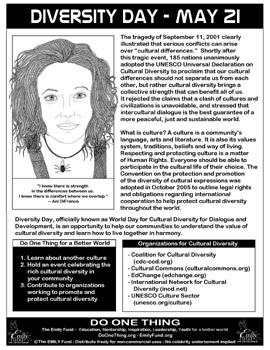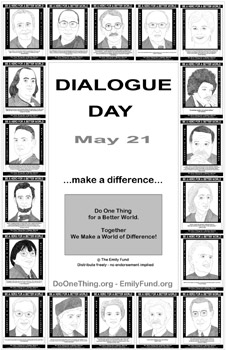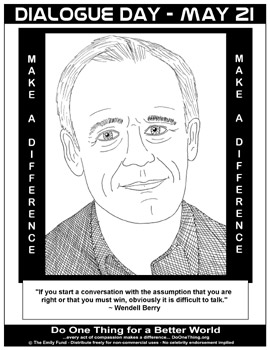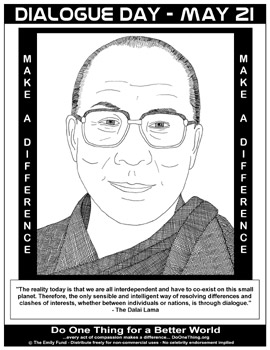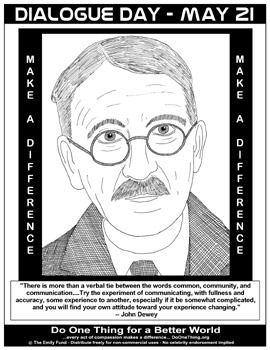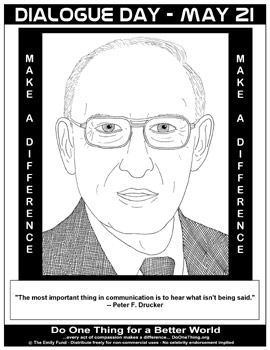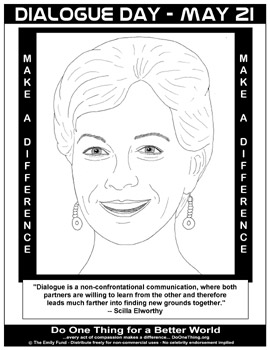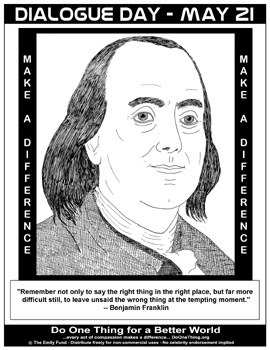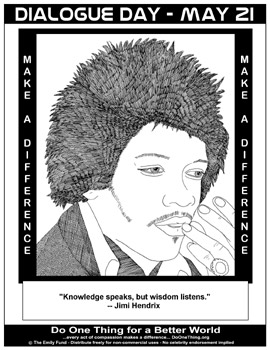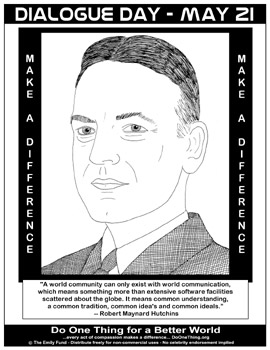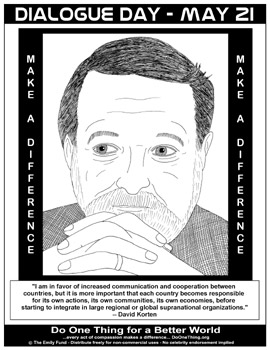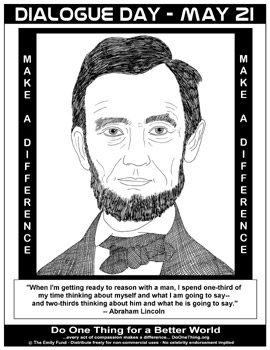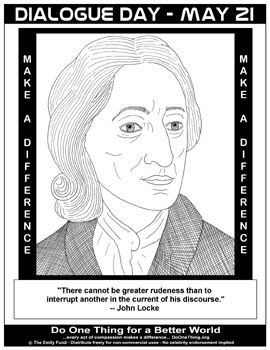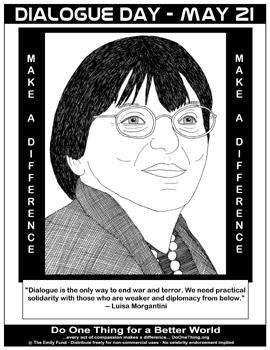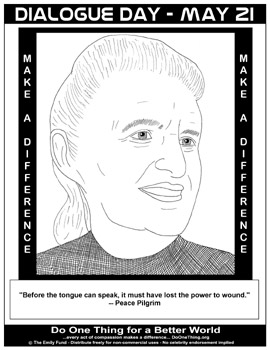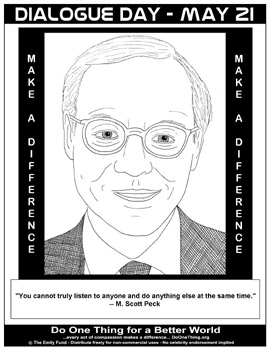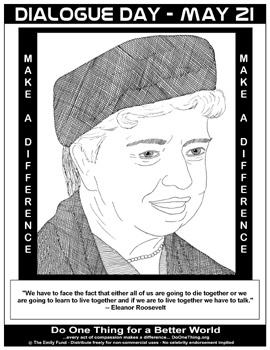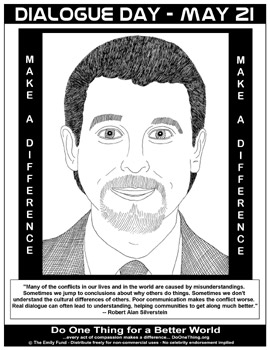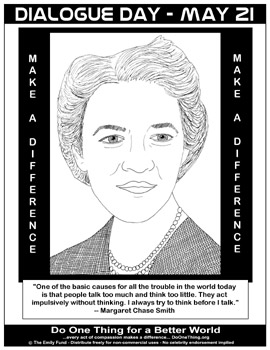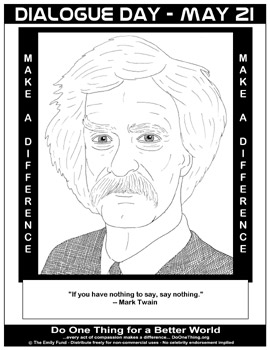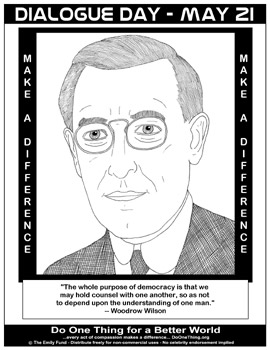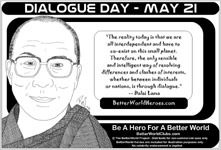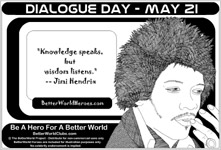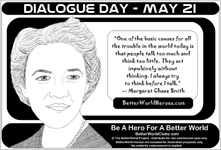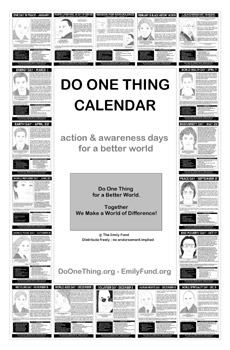Many of the conflicts in our lives and in the world are caused by misunderstandings. Sometimes we jump to conclusions about why others do things. Sometimes we don't understand the cultural differences of others. Poor communication makes the conflict worse. Real dialogue can often lead to understanding, helping communities to get along much better.
The tragedy of September 11, 2001 clearly illustrated that many conflicts in the world are the result of "cultural differences." Shortly after this tragic event, 185 nations unanimously adopted the UNESCO Universal Declaration on Cultural Diversity to proclaim that our cultural differences should not separate us from each other, but rather cultural diversity brings a collective strength that can benefit all of humanity. It rejected the claims that a clash of cultures and civilizations is unavoidable, and stressed that intercultural dialogue is the best guarantee of a more peaceful, just and sustainable world.
What is culture? A culture is a community's language, arts and literature. It is also its values system, traditions, beliefs and way of living. Respecting and protecting culture is a matter of Human Rights. Everyone should be able to participate in the cultural life of their choice. The Convention on the protection and promotion of the diversity of cultural expressions was adopted in October 2005 to outline legal rights and obligations regarding international cooperation to help protect cultural diversity throughout the world.
May 21 was declared to be observed each year as World Day for Cultural Diversity for Dialogue and Development. Thus, the day is both Diversity Day and Dialogue Day because the way our communities learn how to live together in harmony is to understand each other, and the way we understand each other is through dialogue.

